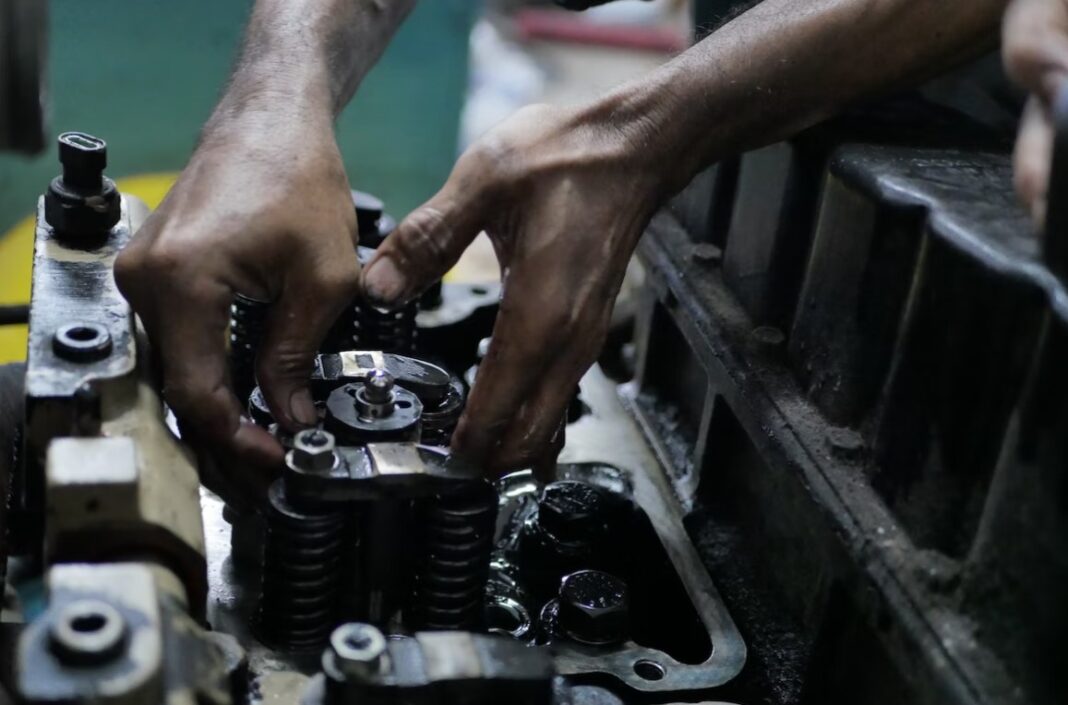Whether you’re looking for an overview of diesel engine repair and service or a more in-depth guide, you’re in the right place. You’ll learn about the job duties of a mechanic, the differences between a diesel and gasoline engine, and how to properly maintain a diesel engine. Also, you’ll learn about some of the heavy-duty components that make a diesel engine last longer.
Differences between gasoline and diesel engines
A person in the market for a new vehicle may wonder what the differences are between gasoline and diesel engine repair and service San Jacinto CA. They both operate on internal combustion, but a diesel engine is more straightforward and reliable.
Diesel engines are more energy-efficient than gas engines. Their fuel is cleaner and less acidic. It means it is easier to burn and lubricate. It is also dense, producing high power without limiting efficiency.
Gasoline engines are more complex and require higher maintenance costs. These are due to the small components and wear and tear from repetitive stop-and-go driving. But diesel engines are sturdier and have fewer components.
Diesel vehicles are more efficient and durable, with an average life span of 250,000 to 300,000 miles. So it is thanks to their higher compression ratios and thicker cylinder walls.
While a diesel engine may be attractive to consumers looking for cheap maintenance, its costs can be daunting. The initial price of a diesel can be double that of a gas vehicle, and repair costs are almost twice as high.
Proper maintenance of a diesel engine
Proper diesel engine maintenance is vital to your vehicle’s long life. Diesel engines are rugged and economical to operate. However, they do need routine servicing to keep them working smoothly. Proper diesel maintenance can also save you time and money and prevent problems that could put your engine at risk.
The fuel system is one of the first things to check for in a diesel engine. It includes the oil pan, valves, and fuel lines. Leaks from these areas can shut down the entire system and compromise the engine’s performance.
Another essential part of your engine is the coolant. The coolant protects the radiator from overheating and keeps it from freezing. The coolant can erode the radiator and other components if it gets too acidic. It should be flushed out every 60,000 miles.
Another essential part of your diesel engine is the air filter. Dirty filters will wear out your engine and cause it to lose power.
Heavy-duty components
Diesel engines are made with heavy-duty components to keep them up and to run. These parts are also designed to stand up to high pressures and temperatures. Typically, diesel engines last longer than their gasoline counterparts. However, they may require a hefty maintenance budget.
An excellent way to keep your heavy-duty diesel engine in pristine condition is to have regular oil changes. Oil changes help prevent premature wear and tear. They can also prevent fuel from clogging up the engine’s fuel system. The same goes for keeping the engine’s water controls in working order.
Diesel engines are more efficient than their gasoline counterparts. It is because they run on less volatile fuel. They can produce more horsepower at lower RPMs. Additionally, the power can lubricate itself as it passes through the cylinder.
The best part about diesel engines is their high longevity. Generally, they can last two or three decades, depending on their design and fuel.
Job duties of a diesel mechanic
Diesel mechanics are responsible for the maintenance of diesel-powered vehicles. They perform routine checks, replace parts, and keep the engine in good condition. These technicians use hand tools, welding equipment, and computers to complete the repair work.
A wide variety of companies hire Diesel mechanics. Some industries where they can find work include oil and gas, construction, and automotive transport.
A diesel mechanic must be adept in using hand tools, power tools, and computer software. They must also be able to identify fault codes and diagnose malfunctioning systems. The ability to troubleshoot problems is a vital asset in the field.
Diesel mechanics are also expected to maintain a clean and organized workspace. They need to be able to manage their inventory of tools and components. They may also need to test their vehicles to ensure they run smoothly.
In addition, diesel mechanics need to be well-organized and have a high level of technical expertise. Mechanics must also have strong communication skills. It is evident in the way they interact with teammates and clients.

